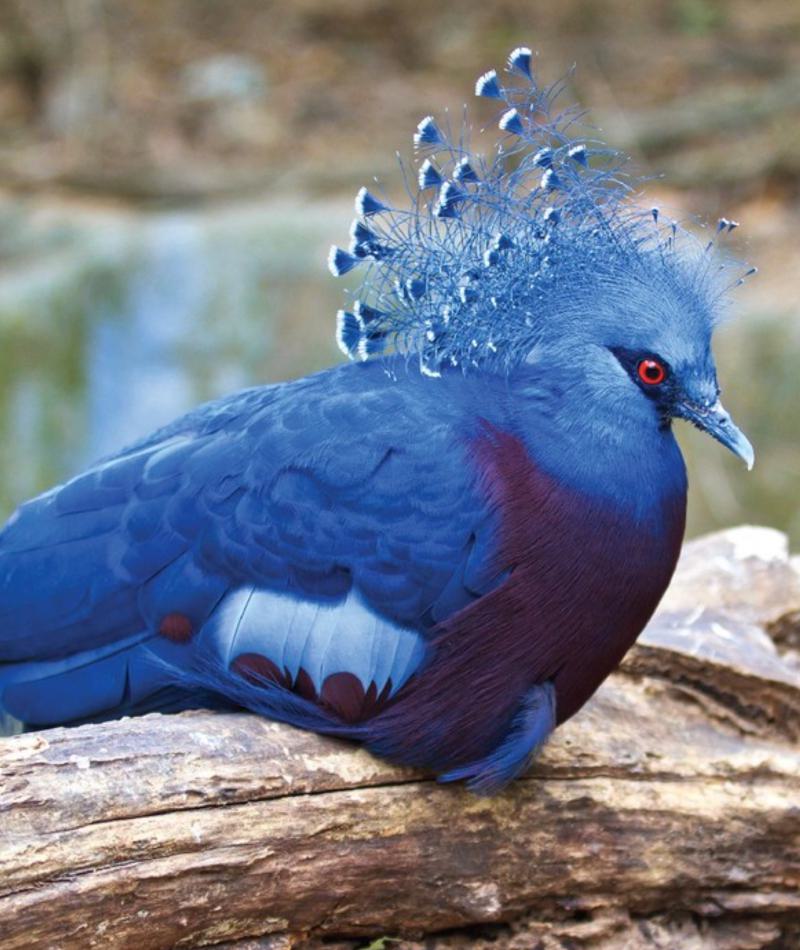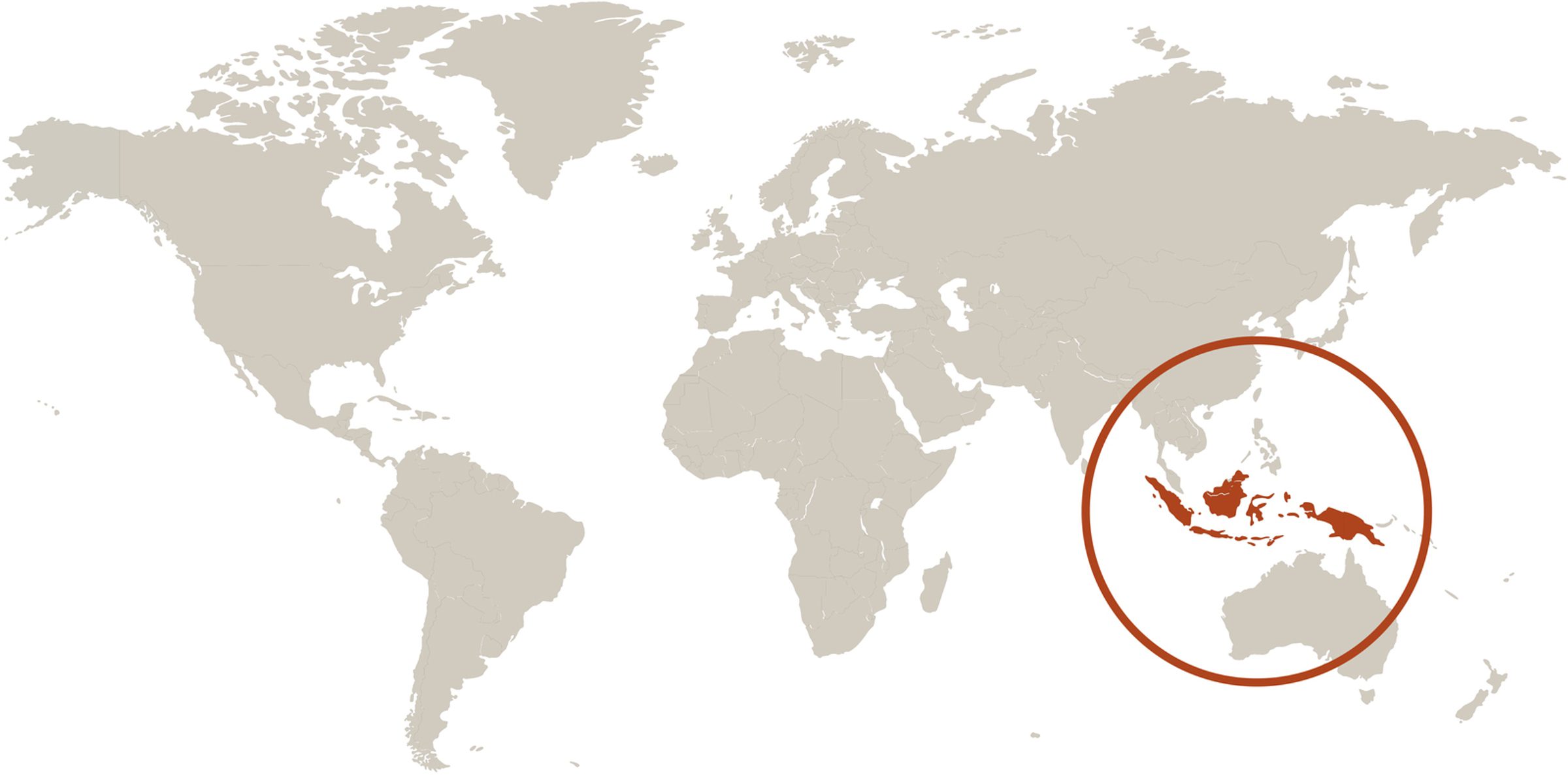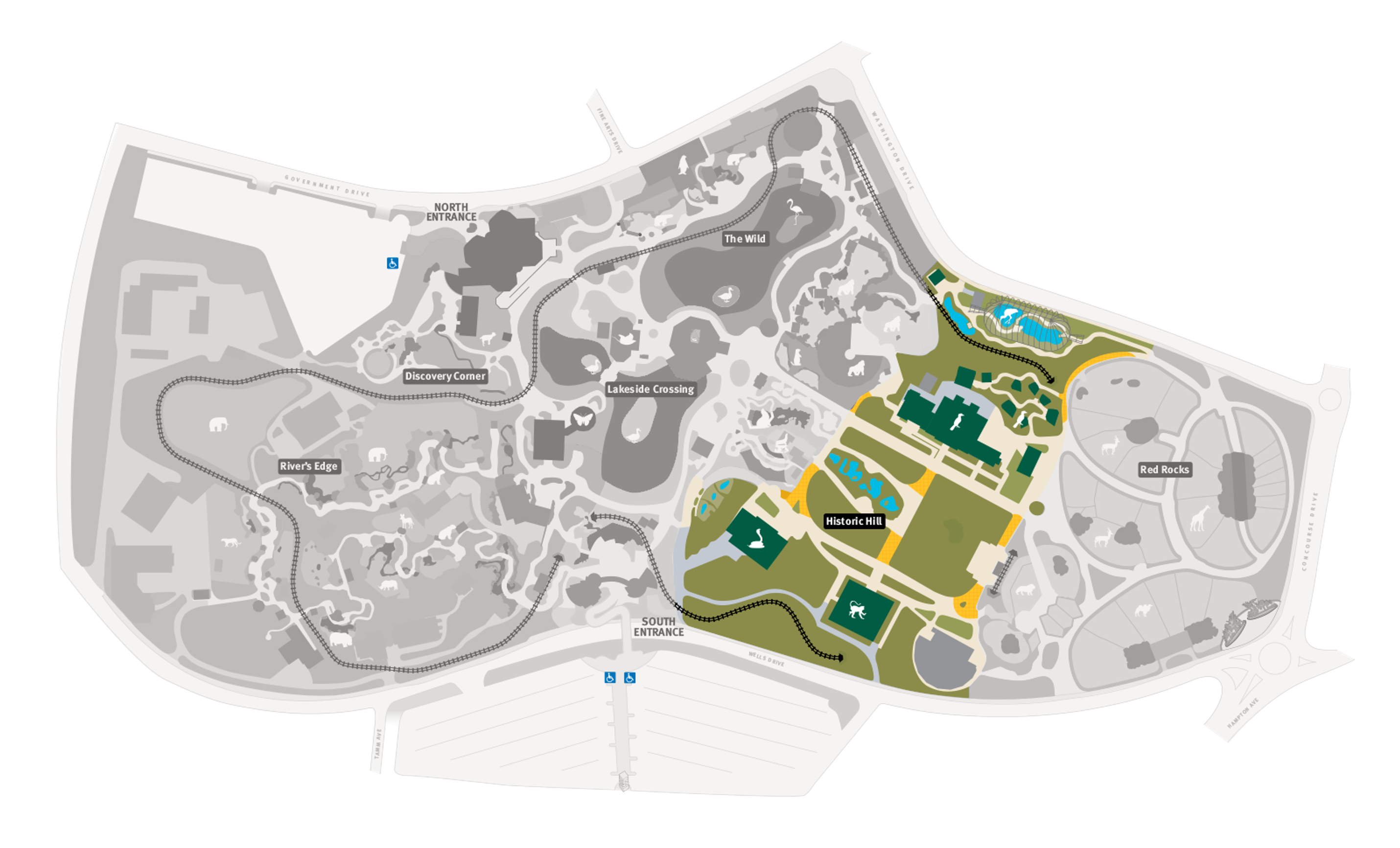
Victoria Crowned Pigeon
Goura victoria
Did you know?
- Victoria crowned pigeons are a part of the Columbidae family, which they share with pigeons and doves.
- They are named after British monarch Queen Victoria and the “crown” of feathers atop their heads.
- They live in swamps and palm forests in New Guinea and surrounding islands.
- They are the largest pigeon species in the world.
- A female lays a single egg per clutch.
Unique Pigeon
Victoria crowned pigeons are large birds that can weigh five pounds, making them the biggest pigeons in the world. They have 16 tail feathers instead of the typical 12 for pigeons. They also have a fan-like crown of feathers atop their head, a characteristic unique to this species.
Young and Family
Victoria crowned pigeons are monogamous and will mate for life. They have been seen living in family groups of two to 10 individuals. When attracting a mate, a male will raise his head feathers and create a “hoota” mating call. They are territorial and males especially will make a loud booming noise when defending their area from other males.
Threat Level
- Unknown
- Common
- Near Threatened
- Threatened
- Endangered
- Critically Endangered
- Extinct in the Wild
Near threatened
The Victoria Crowned Pigeon is likely to qualify for threatened category in the near future, perhaps very quickly depending on local development projects such as rainforest logging.
Range
New Guinea and surrounding islands
Habitat
Swamp and palm forests

We care about Victoria crowned pigeons
The Saint Louis Zoo participates in the Species Survival Plan® for
Victoria crowned pigeons. This is a cooperative breeding program, with a
number of zoos working together to ensure the survival of this species.
We also support them in the Bird House at the Zoo. Learn more about how
we are helping wildlife around the world:
Dedicated to Conservation
Find this animal in Historic Hill

SAINT LOUIS ZOO ZONE
Historic Hill
Historic Hill is a lovely stroll through one of the oldest parts of the Saint Louis Zoo. From the 1904 World’s Fair Flight Cage to the Spanish architectural flavor of the 1920s in the Bird House, Primate House and Herpetarium to the finishing touches of our thoroughly modern exhibits, this area of the Zoo has a unique ambiance and a nostalgic history that make it a great destination.

